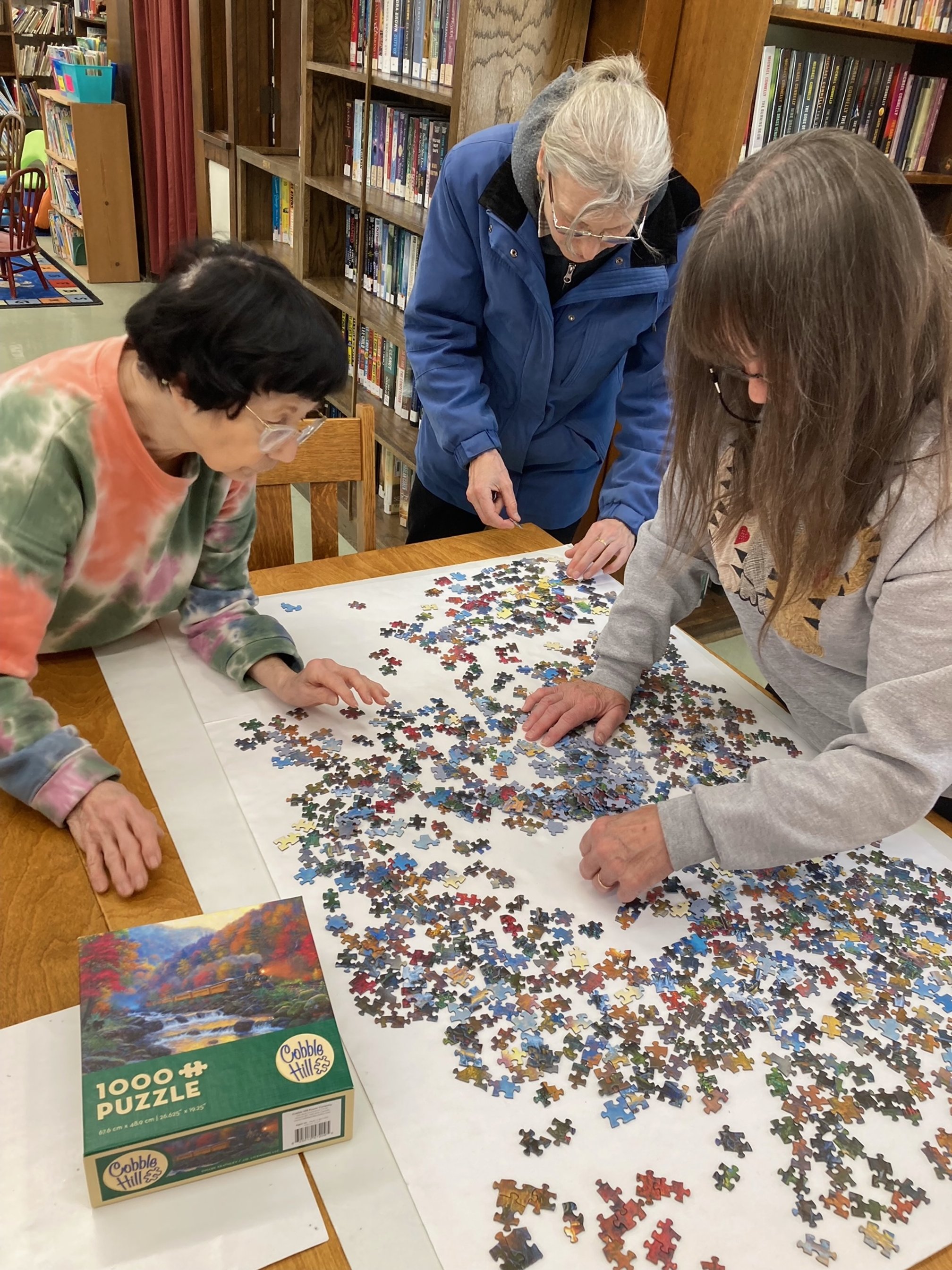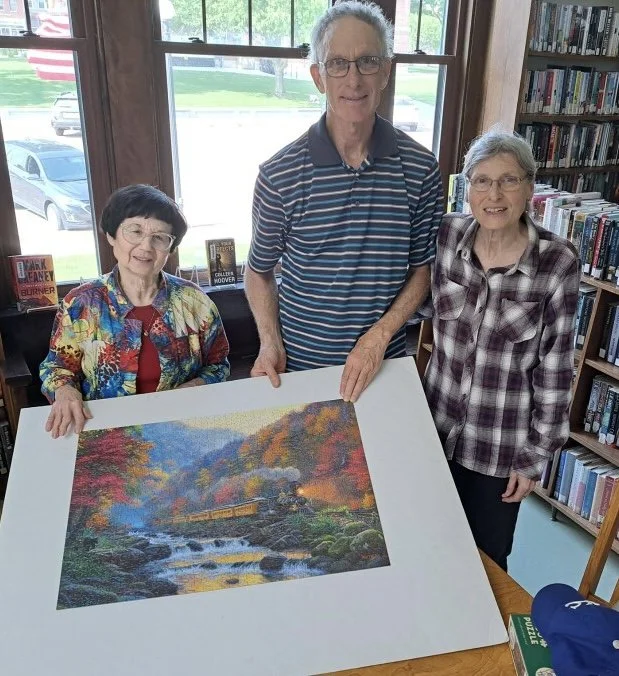Third Places: An Ode to Pubs, Parks, Piers, and Public Libraries
As places for anybody and everybody, pubs, parks, piers, and public libraries epitomize third places.
Some evidence: third places enable folks to relax and escape pressures of home and work, and are the OGs of the self-care industry, if you will.
Before self-care became synonymous for dropping lots of cash for ridiculous products/services/experiences that lack real social connection.
I’m here to tell ya that you don’t need to drop loads of cash at third places. The relaxation and social support you find there is free or minimal (i.e. the price of a beer or a haircut).
This money-saving effect leads me to the second of the six ingredients that authentic third places have.
Mary Kathryn Gepner (left), Mount Ayr’s librarian, shapes the Mount Ayr Public Library as a terrific third place. There’s space for folks to hang out, work on puzzles together, and loads of community events for all ages throughout the year.
Third Places act as levelers.
Do what?
By “leveling”, I mean the leveling of status.
Mount Ayr puzzle crew. Libraries serves as informal community centers in many rural towns.
Why this matters
Leveling places permit folks to forget their many, many hierarchical identities when they walk through the door. Job titles, religious affiliations, family roles, medical diagnoses – these go right out the window for a couple of hours, along with whatever jargon and posturing that may accompany these roles.
When folks turn the volume down on their roles, they’re often more real, which can be freeing and open them up to meeting folks different from themselves.
Alcohol can help level. :)
When a place attracts folks from a wide array of backgrounds and life experiences, it acts as a community bridge. We know that the more bridging that happens in a town or a city or a neighborhood, the higher quality of life those folks experience because:
Bridging can lead to an increase of community trust
And that trust is necessary for big, hairy projects and large-scale, local initiatives to get done.
Beyond books, the Oskaloosa Public Library provides cultural programming, language classes, reading programs, music events, a seed library, a makerspace, a library of things, and a genealogy room.
What contributes to “leveling”?
Numero uno, you don’t need a membership to enter a third place. Memberships for entry work against the very vibe that third places create, one that is open, inviting, and warm.
Secondly, an easygoing, upbeat environment - think food, drink, music, and anything else informal and fun that contributes to folks shedding their ties and business cards.
GLEANING WISDOM FROM THIRD PLACE CULTURE
I’d like you to consider for a sec the traits of a place that you frequent, or that you’d like to frequent if you had the time.
What comes to mind? What contributes to these traits? How can these elements be incorporated into places you manage?





